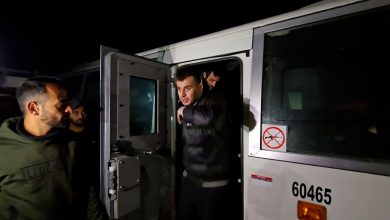Jerusalem – In a firm reiteration of its security stance, the Israeli government has declared its intention to maintain comprehensive control over the Gaza Strip following the cessation of current hostilities. This announcement arrives amidst ongoing discussions regarding the composition and deployment of an international force intended to stabilize the region, as well as the delicate issue of recovering the remains of Israeli captives.
A government spokesperson confirmed the policy, stating that Israel will ultimately determine the acceptability of any international forces operating within the Gaza Strip. This assertion follows earlier remarks by Prime Minister Benjamin Netanyahu, who emphasized Israel’s prerogative in vetting and approving any foreign military presence. The statement underscores the deep-seated security concerns that continue to shape Israeli policy regarding Gaza.
The affirmation of control coincides with Prime Minister Netanyahu’s approval for an Egyptian technical team, working in conjunction with the International Committee of the Red Cross (ICRC), to enter Gaza. Their mission is to search for the bodies of Israeli hostages believed to be held within the territory. The spokesperson clarified that this humanitarian gesture does not signal any shift in Israel’s overarching security strategy.
“This action is purely humanitarian in scope and should not be misconstrued as a modification of our commitment to maintaining security control,” the spokesperson stated. “Israel remains resolute in its determination to prevent any resurgence of threats emanating from Gaza.”
Netanyahu, who faces scrutiny from the International Criminal Court, previously indicated that Israel would define the parameters for foreign forces participating in any international peacekeeping mission. This plan, initially proposed as part of a broader U.S.-led initiative, aims to establish a multinational presence to help stabilize Gaza in the aftermath of the conflict. The viability of this plan, however, hinges on the willingness of various nations to commit troops to what remains a highly volatile and dangerous environment.
The question remains whether Arab nations, or other countries, are prepared to deploy personnel to the Gaza Strip. Israel has repeatedly voiced reservations about the composition of such a force, fearing potential biases or agendas that could undermine its security interests. The previous U.S. administration had explored the possibility of contributions from Egypt, Indonesia, and Gulf Arab states, while explicitly ruling out the deployment of American soldiers.
“We control our security, and we have made it clear to international powers that Israel will determine which forces are unacceptable to us. This is how we act, and we will continue to act this way,” Netanyahu stated during a recent cabinet meeting. His remarks highlight the sensitive balance between international cooperation and the preservation of Israeli sovereignty.
For more information about Palestine, check our dedicated section.
Echoing this sentiment, U.S. Secretary of State Marco Rubio, during a recent visit to Israel, asserted that any international force deployed to Gaza must be comprised of personnel from nations “welcomed by Israel.” He further added that the future governance of Gaza remains a topic for discussion between Israel and its partners, but that any future arrangement cannot include Hamas.
The international community remains divided on the issue of Gaza’s future. Some advocate for a strengthened Palestinian Authority role, while others propose alternative governance models. The exclusion of Hamas, however, appears to be a common thread in most proposals, reflecting widespread concerns about the group’s continued control over the territory.
Meanwhile, in a separate incident, the Israeli military reported that twelve soldiers sustained injuries in an operational traffic accident along the Gaza border. Two soldiers suffered moderate injuries, while ten sustained minor wounds. All injured personnel were evacuated to hospitals for medical treatment. The incident underscores the inherent risks associated with military operations in the region, even during periods of relative calm.
The accident is under investigation, and the military has not yet released specific details regarding the cause. However, it serves as a stark reminder of the ever-present dangers faced by Israeli forces deployed near the Gaza Strip.
The ongoing debate surrounding security control and international involvement highlights the complex challenges facing Gaza. While Israel insists on maintaining security oversight, the international community seeks a durable solution that addresses the underlying causes of conflict and provides for the long-term stability of the region. Finding a balance between these competing priorities remains a significant obstacle to achieving lasting peace. The coming weeks and months will be crucial in determining the shape of Gaza’s future, and the role that international actors will play in shaping it. The situation continues to be closely monitored by regional and international observers, with the hope that a peaceful and sustainable solution can be found.
DZWatch will continue to provide updates on this developing story as they become available.



